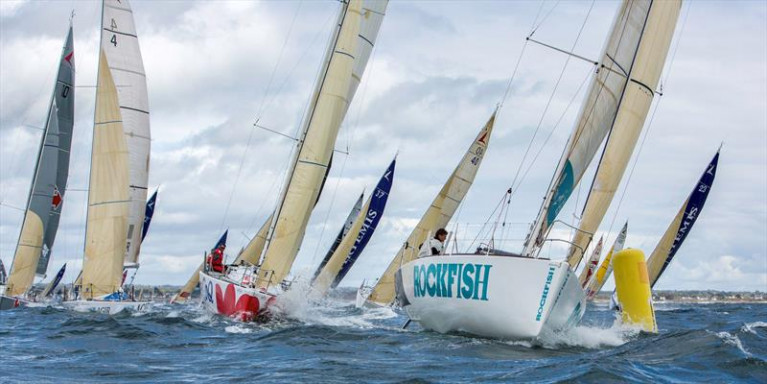Every cloud has a silver lining and perhaps for Irish Sailing, it has come with the cancellation of the trials series scheduled in Concarneau for the World Offshore Sailing Championships this week.
Its cancellation notice, however, was notably the first Irish Sailing update on these trials. The three trialists have yet to be published. In fact, every aspect of the trials has been conducted privately between a small number of sailors and the Irish Sailing office.
Back in December, as news of the 2024 Olympic class was announced, Irish Sailing said 'while it will facilitate the process for the selection of a team, it should be noted from the outset, that Irish Sailing has no budget for this event and all costs will be borne directly by the teams competing'.
Irish Sailing has done well to maximise the investment in its High-Performance programme to date. Accounts show a total of over €3m on funding between 2017 and 2020. Now that Offshore sailing has a place in the Olympics, it must be included in the planned investment for the next cycle. Offshore is a discipline with which we are familiar and unlike most of the Olympic classes, forms a significant part of our national sailing scene. We are not without talent, and the opportunity, especially in a one boat per nation event, must be matched with the available resources to develop a strong development programme with Paris 2024 in mind.
Hopefully, March's cancellation will encourage Irish Sailing to review the way in which this opportunity has been handled, perhaps learning from the open and transparent way, for example, the RYA has conducted its offshore trial.
When World Sailing decided to include Offshore Sailing in the Olympic Games, Irish sailors were delighted to see an opportunity for easier access to the pinnacle sports event in an area where Ireland has displayed some strength.
At that time, imaginations overflowed about how this could impact positively on the development of sailing, with a particular shift towards female participation.
In the Sport Ireland commissioned Rio 2016 review, it was recommended the sport could benefit from 'more class competition within Ireland'. Other than the Laser dinghy, there is no domestic competition in Olympic classes here. This new keelboat is an opportunity to make Olympic sailing more visible and part of the national sailing scene where more than 70% of all racing is now in keelboat classes. What's more, it's a chance for Irish Sailing to deliver on the 2016 recommendation.
Qualification for the Worlds, a precursor to any Olympic campaign, could be in boats that already exist, at events that already exist, using a rating system, without the huge costs associated with Olympic campaigning. Double-handed male/female elements could be added to ISORA, Round Ireland, Dun Laoghaire-Dingle and similar events, enhancing those, encouraging participation and providing ready-made training opportunities.
The hopes for this were dashed when Irish Sailing, in a private communication to a few who had declared interest, decided the trials for the Offshore Worlds were to be run in Figaro style boats which effectively had to be chartered at a cost of €5,000.
Furthermore, the trials were to take place in France in late March/early April.
Rearrangements for these trials currently underway brings with it the chance for Irish Sailing to be encouraged to establish appropriate, transparent and public procedures for future selection events.
Ultimately, this will mean the winner gets the honour of representing Ireland on the world stage in the knowledge that they have been the best of the Irish in an offshore trial that followed best practice and as a result Irish Olympic sailing moves centre stage on home waters.






























































